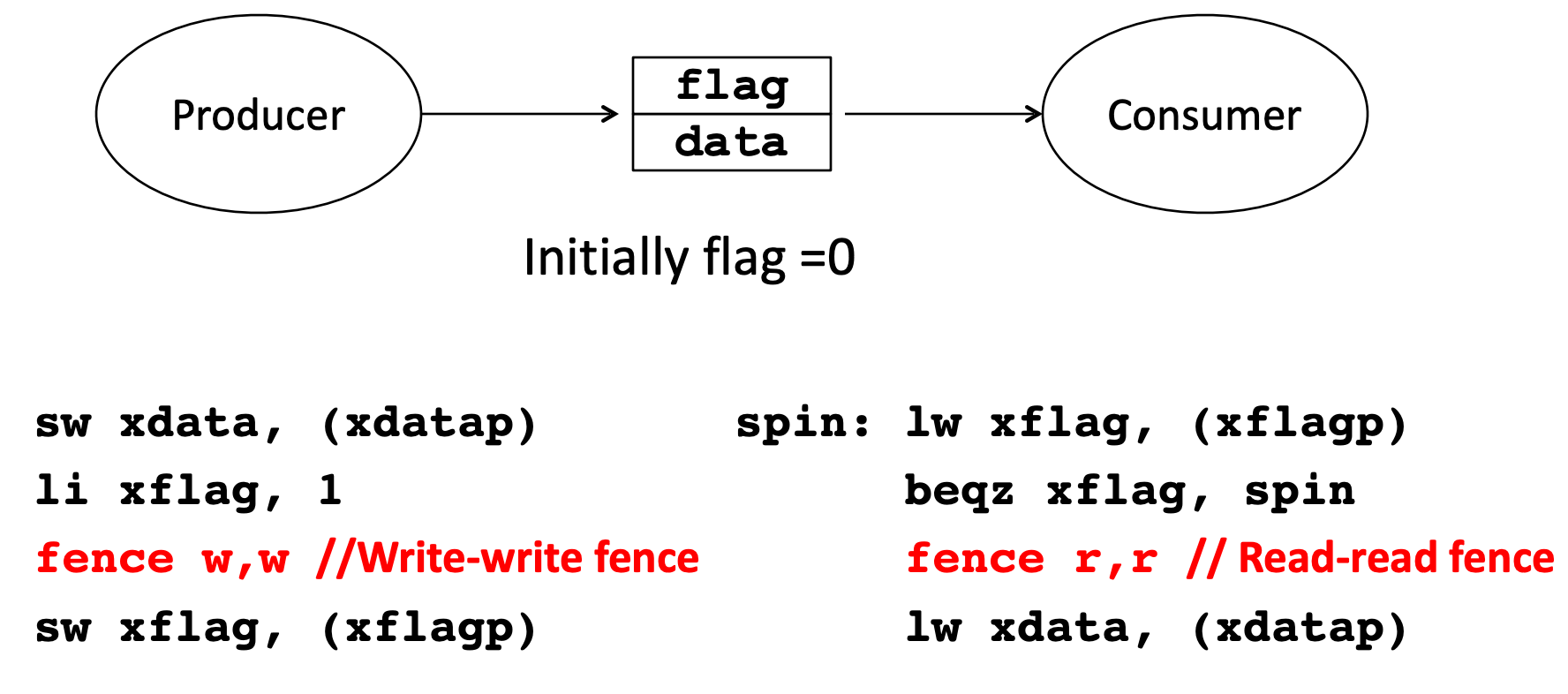8 Cache Coherence & Memory Consistency
Cache Coherence
Snoopy Cache
Have cache watch (or snoop upon) other memory transactions,and then “do the right thing”
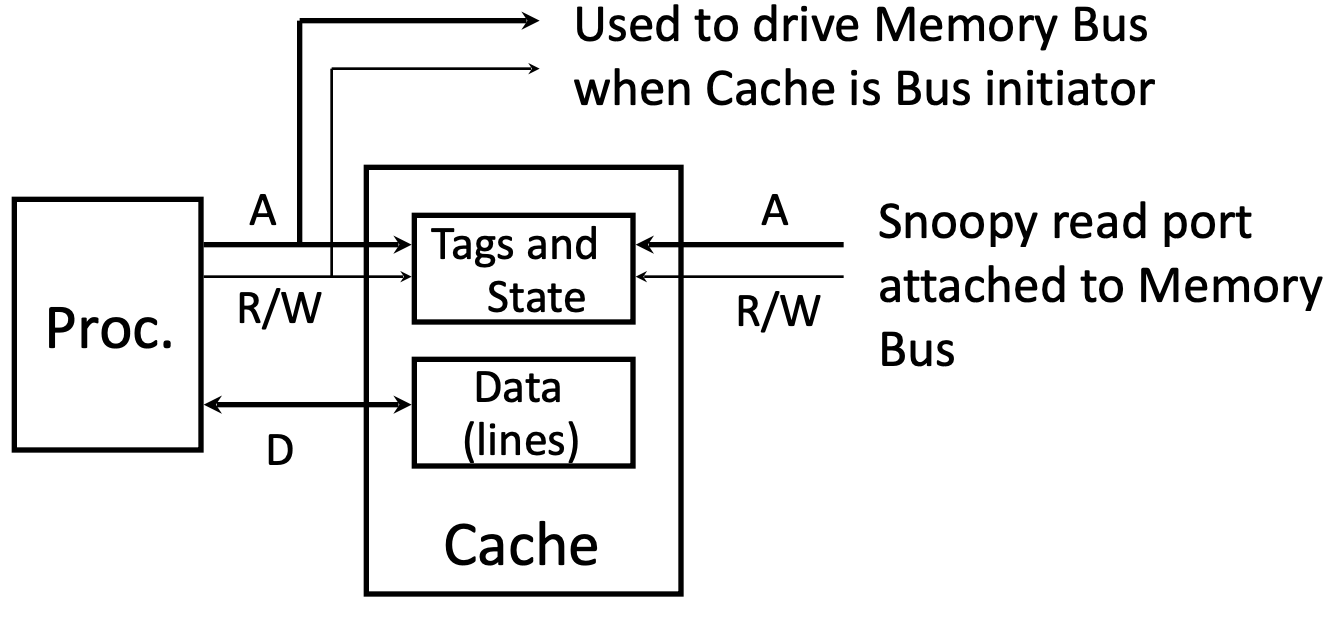
Cache Coherence Protocols
- write miss: the address is invalidated in all other caches before the write is performed
- read miss: if a dirty copy is found in some cache, a writeback is performed by that cache before the memory is read
MSI
| Valid Bit | Dirty Bit | Shared Bit | |
|---|---|---|---|
| Modified | 1 | 1 | 0 |
| Shared | 1 | 0 | X |
| Invalid | 0 | X | X |
- Modified: up-to-date, changed (dirty), OK to write
- no other cache has a copy
- Shared: up-to-date data, not allowed to write
- other caches may have a copy
- Invalid: This block is either not present in the current cache or has been invalidated by a bus request,and must be fetched from memory if the block is to be stored in this cache
Current Processor

Response to Other Processors
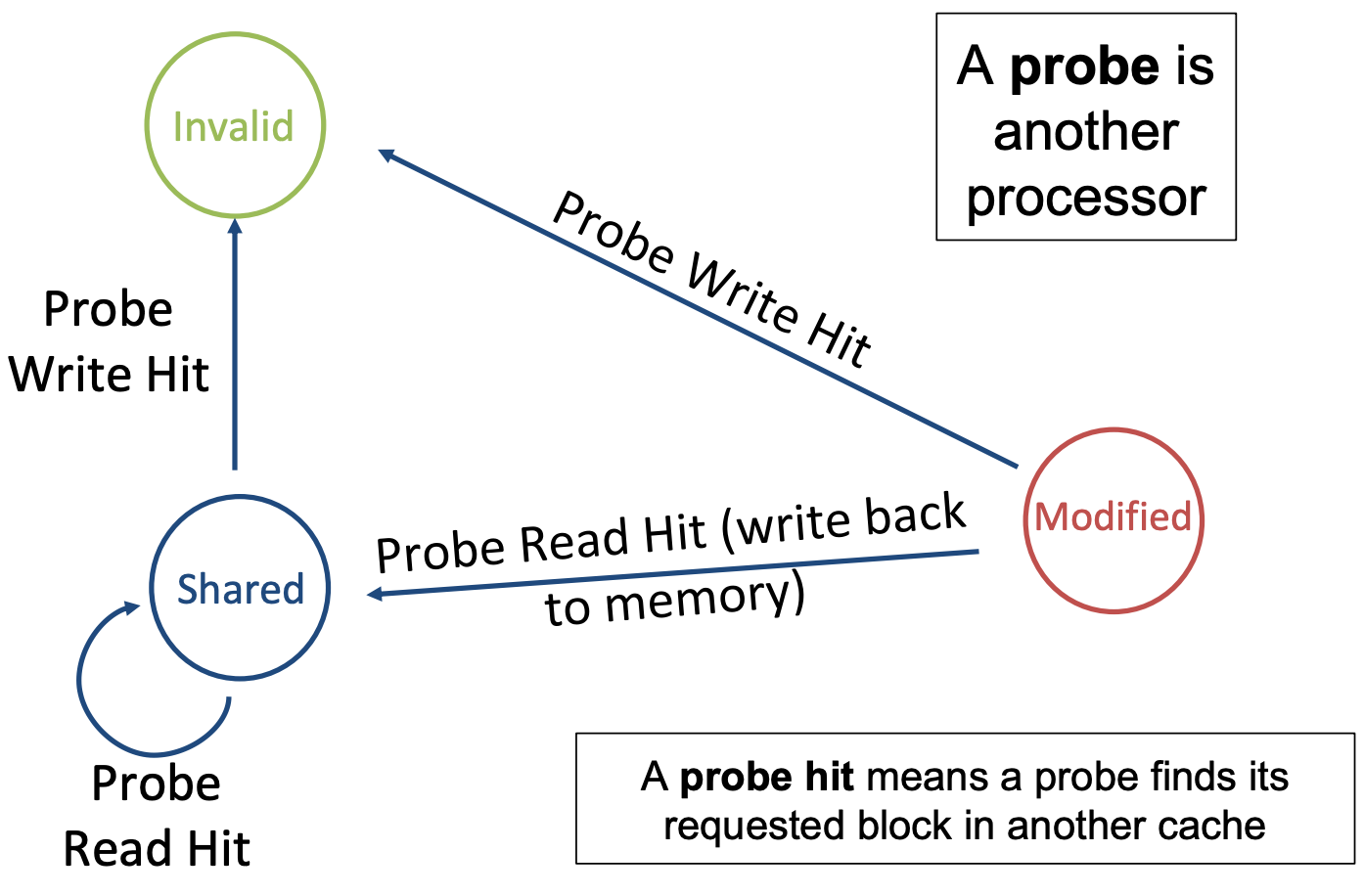
Problem: Writing to Shared is Expensive
- If block is in shared, need to check if other caches have data (so we can invalidate) if we want to write
- If block is in modified, don’t need to check other caches if we want to write.
MESI
| Valid Bit | Dirty Bit | Shared Bit | |
|---|---|---|---|
| Modified | 1 | 1 | 0 |
| Exclusive | 1 | 0 | 0 |
| Shared | 1 | 0 | 1 |
| Invalid | 0 | X | X |
- Exclusive: up-to-date data, OK to write (change to modified)
- no other cache has a copy
- supplies data on read instead of going to memory
- Shared: up-to-date data, not allowed to write
- other caches have a up-to-date copy
On Write Miss:
- Other Copies in I: Value read from memory to local cache
- Other Copies in S or E: Value read from memory to local cache + Snooping invalid
- Other Copies in M: Snooping Writes back its copy to memory, set invalid + Value read from memory to local cache
Current Processor
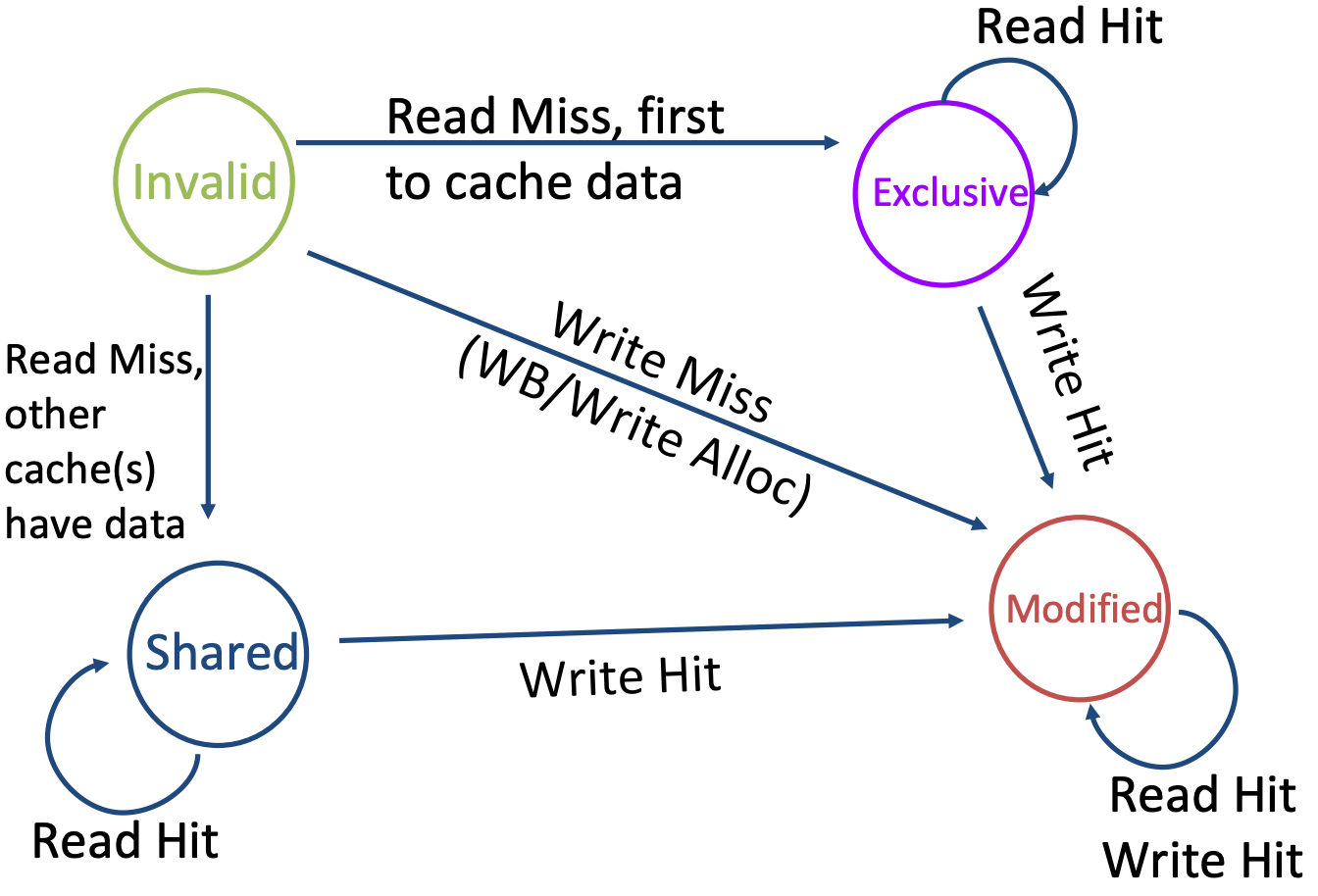
Response to Other Processors
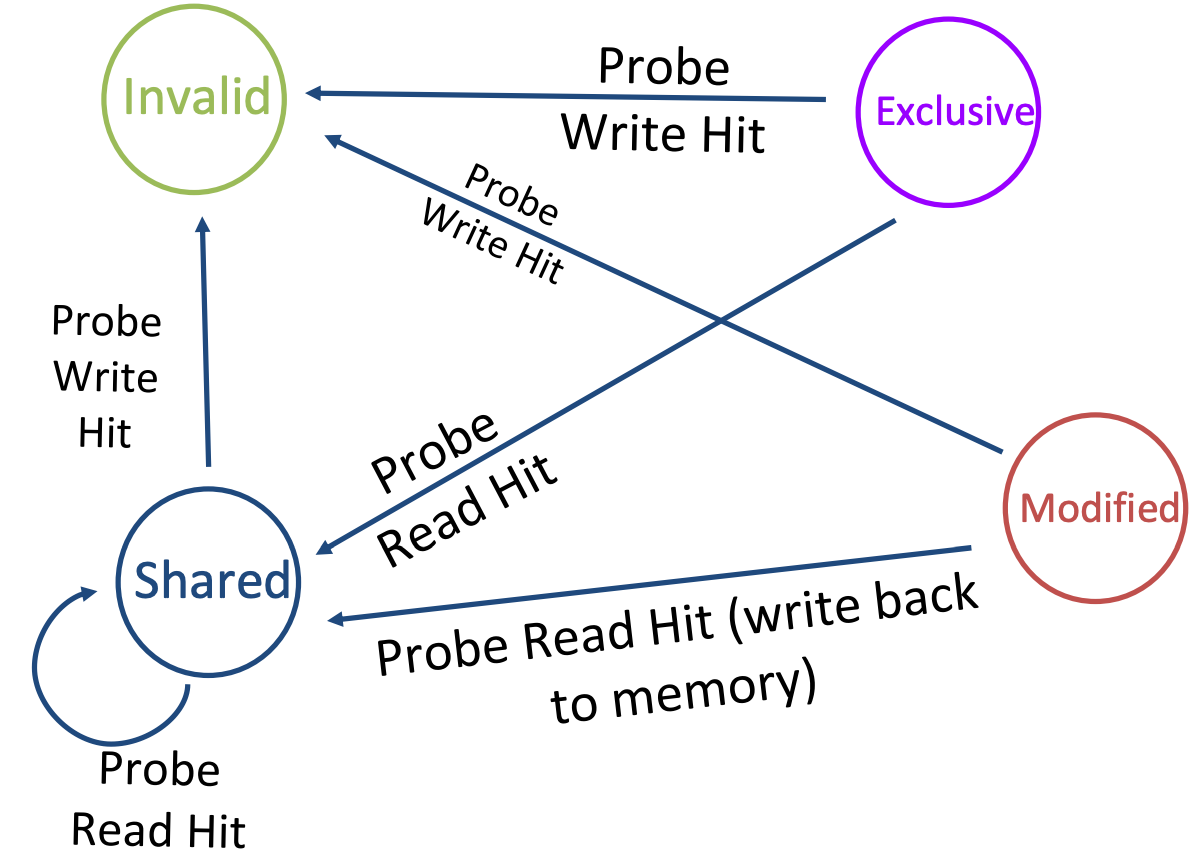
Problem: Expensive to Share Modified
In MSI and MESI, if we want to share block in modified, Modified data has to write back to memory
MOESI
| Valid Bit | Dirty Bit | Shared Bit | |
|---|---|---|---|
| Modified | 1 | 1 | 0 |
| Owned | 1 | 1 | 1 |
| Exclusive | 1 | 0 | 0 |
| Shared | 1 | 0 | 1 |
| Invalid | 0 | X | X |
- Owner: up-to-date data, read-only (like shared, you can write if you invalidate shared copies first and your state changes to modified)
- Owner supplies data on probe read instead of going to memory
- Shared: up-to-date data, not allowed to write
- copy in memory
ismay be up-to-date
- copy in memory
Current Processor
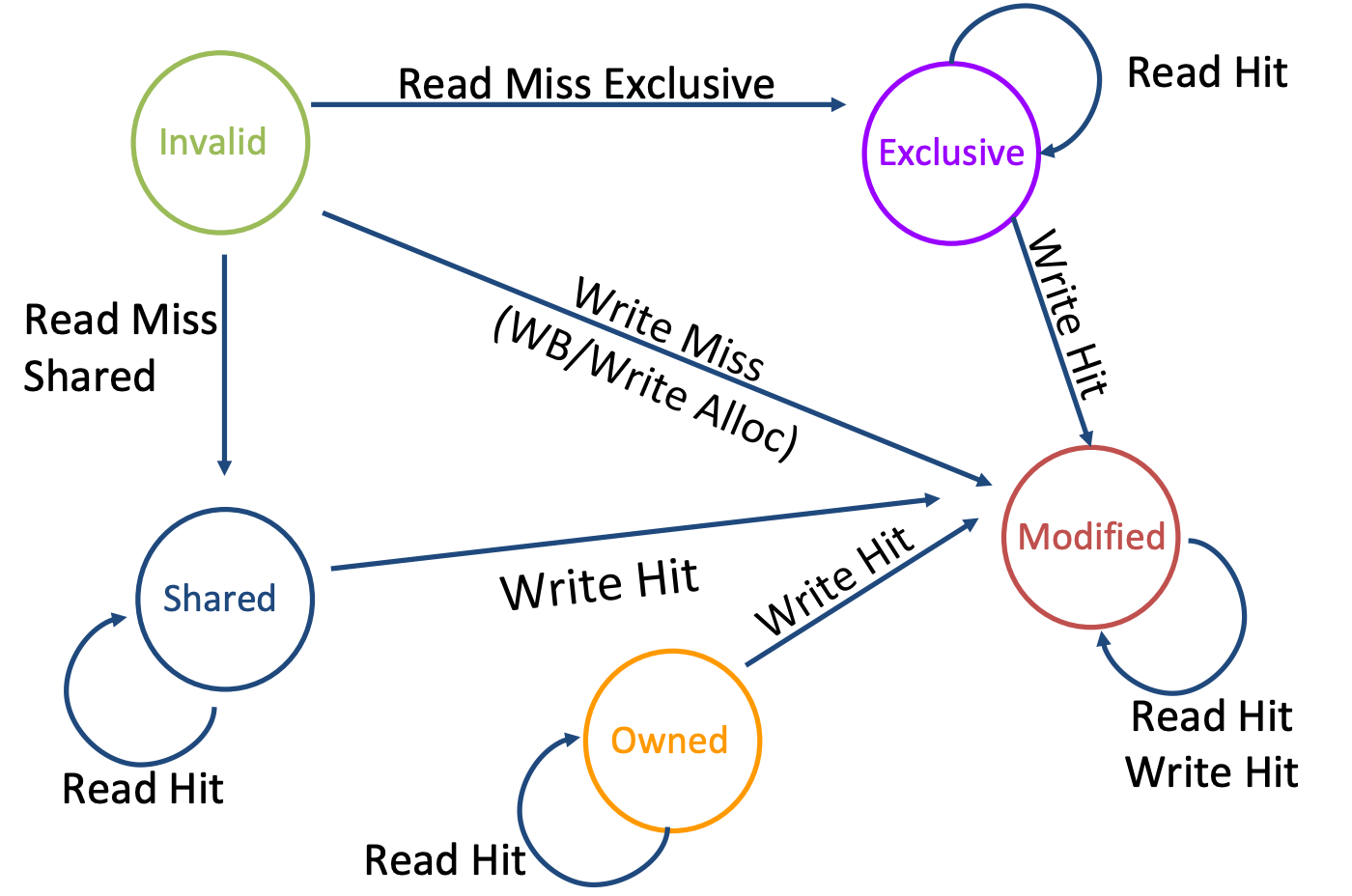
Response to Other Processors
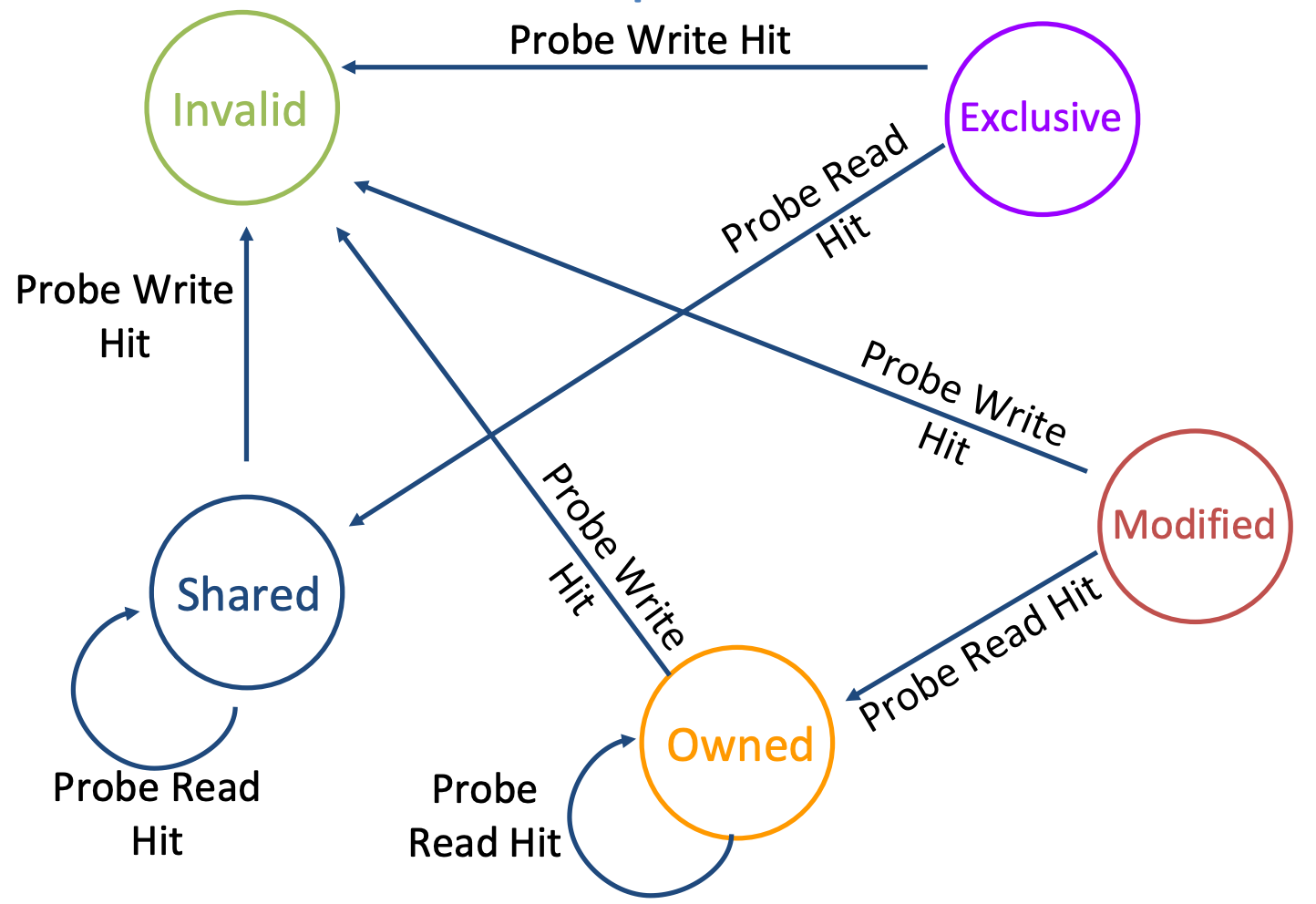
Scalable Approach:Directory Cache
Cache controllers do not observe all activity, but interact only with directory
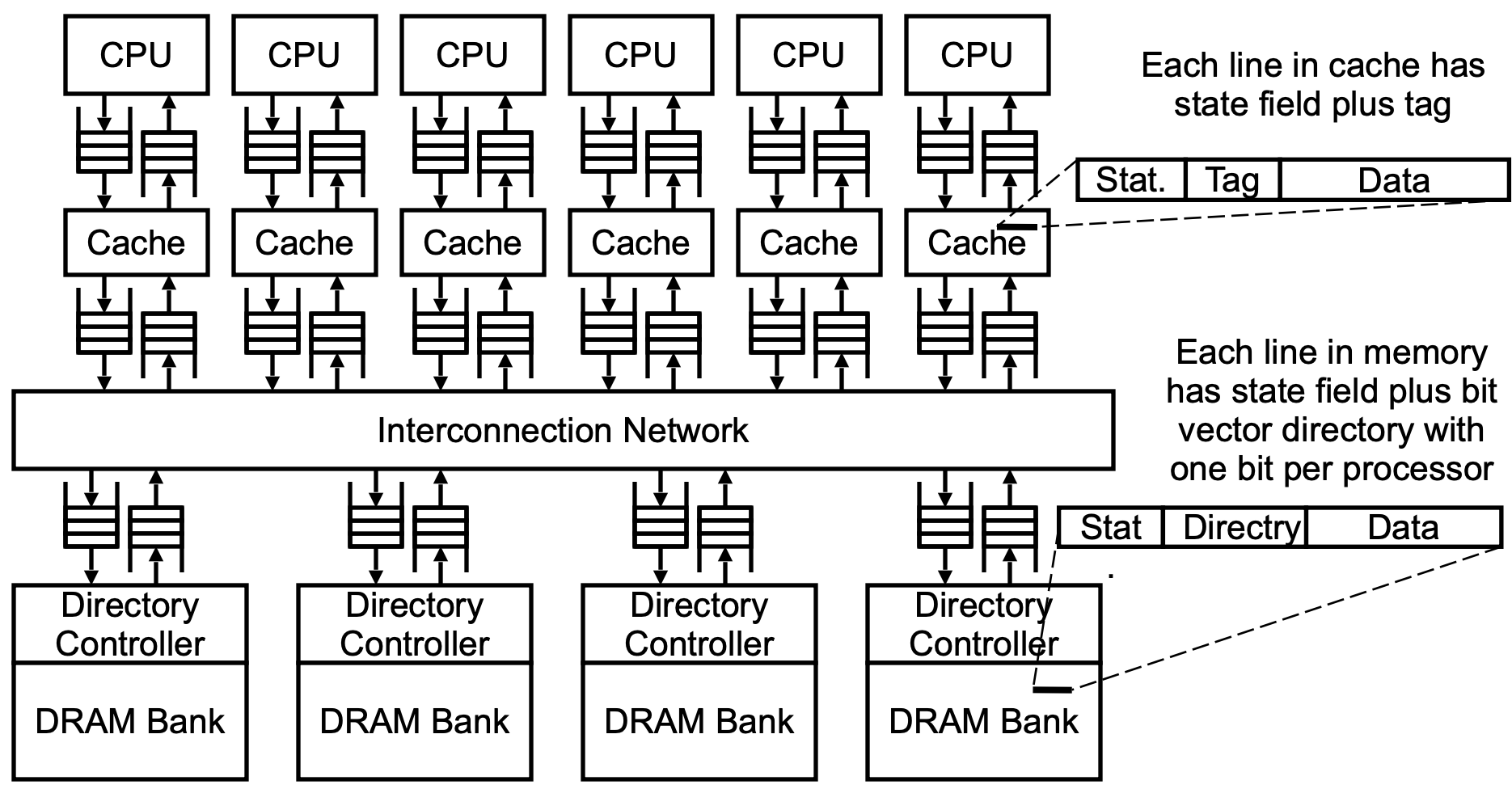
For each cache line,there are 4 possible states(based on MSI):
- C-invalid(=Nothing)
- C-shared(=Sh)
- C-modified(=Ex)
- C-transient(=Pending):for example, the site has just issued a protocol request,but has not received the corresponding protocol reply).
For each memory line,there are 4 possible directory states:
- R(dir):The memory line is read-only by the sites specified in dir(dir is a set of sites).If dir is empty,the memory line is not cached by any site.
- W(id):The memory line is exclusively cached at site id,and has been modified at that site.
- TR(dir)
- TW(id)
Directory: one bit for each processor that is sharing or for the single processor that has the modified line
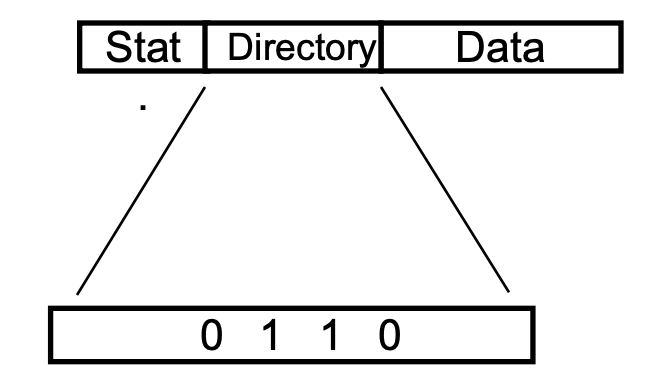
Read miss,to uncached or shared line
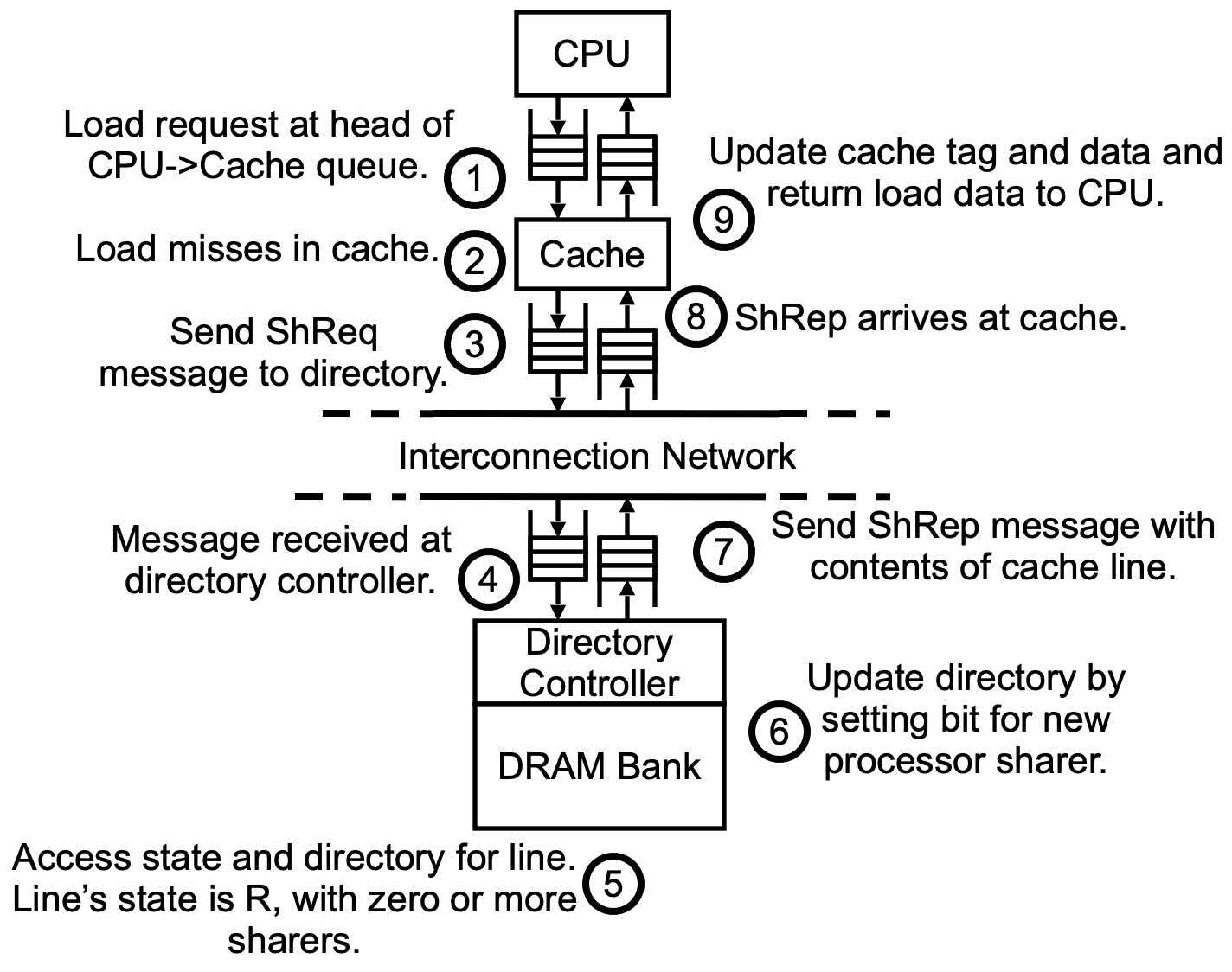
Write miss,to read shared line
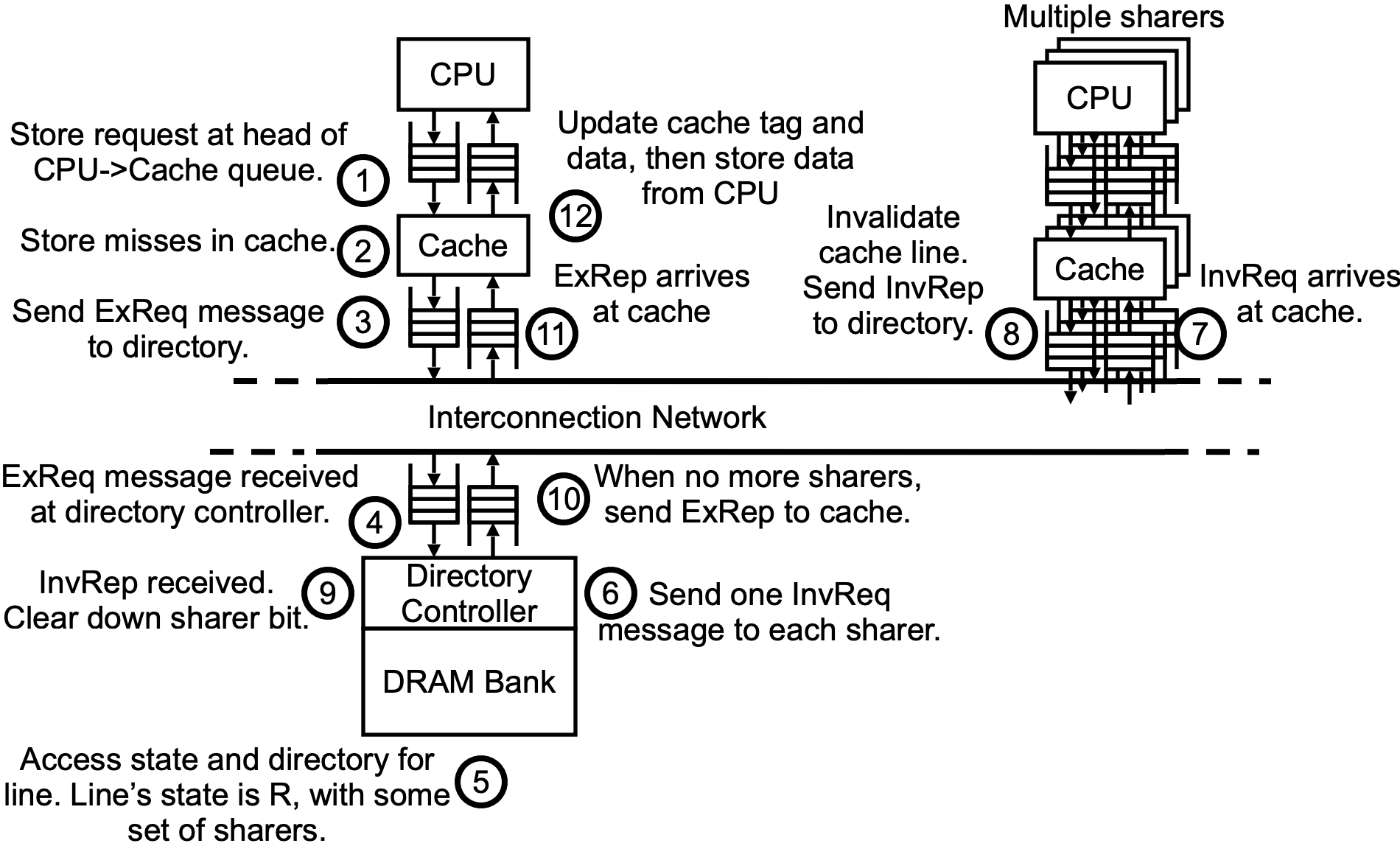
False Sharing vs. Real Sharing
False Sharing: Block ping-pongs between two caches even though processors are accessing disjoint variables
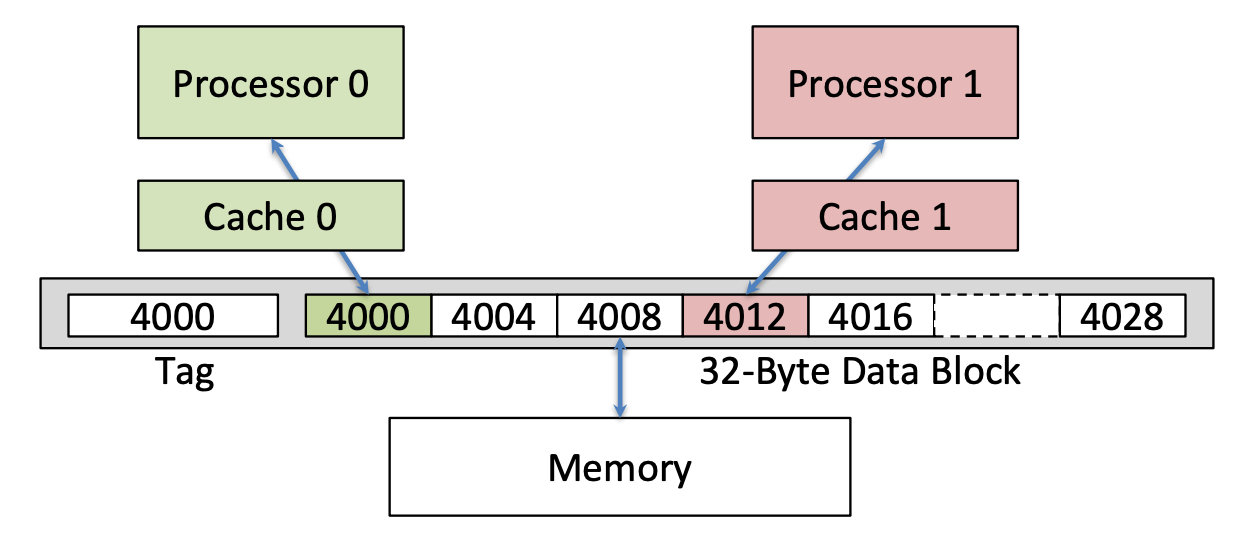
Real Sharing
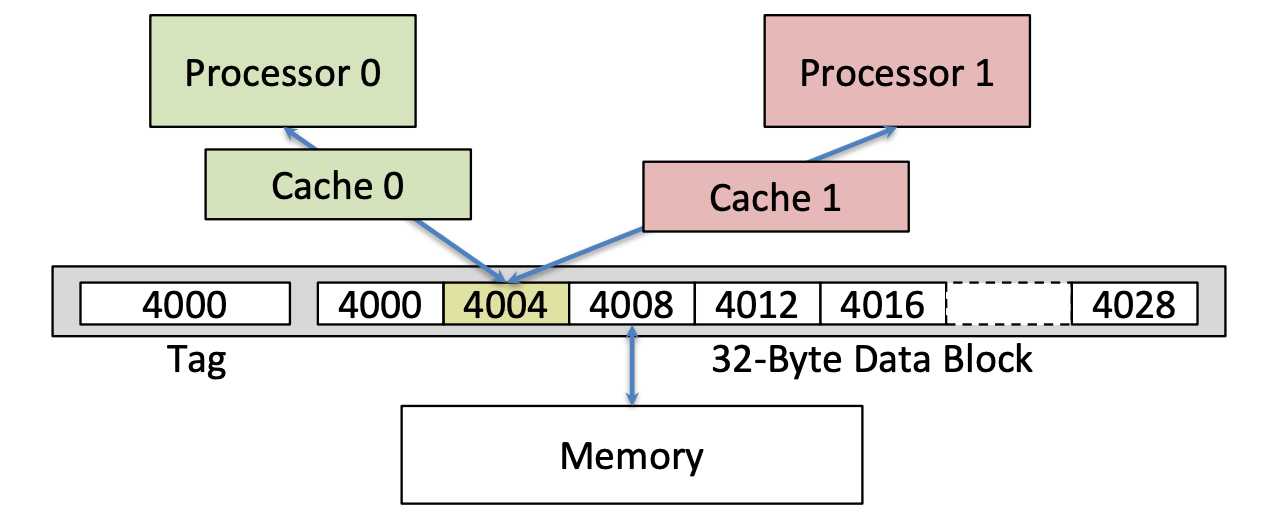
Assume x1 and x2 in same cache line. P1 and P2 both read x1 and x2 previously.
- Time1, X1 was read by P1 and needs to be invalidated from P2
- Time2, X2 was read by P2 and needs to be invalidated from P2
- Time3, X1 was invalidated by the write of X2 in P1, but that value of X1 is not used in P1
- Time4, Block is Shared->hit
- Time5, the block containing X2 is marked shared, but P2 did not read X2.

Memory Consistency
Sequential Consistency
Sequential Consistency: A system is sequentially consistent if the result of any execution is the same as if the operations of all the processors were executed in some sequential order
- Only a few commercial ISAs require SC(Neither RISCV nor X86)
- Weaker memory models -> fewer guarantees
Producer-Consumer: Consumer lw xdata has to be done after lw xflag
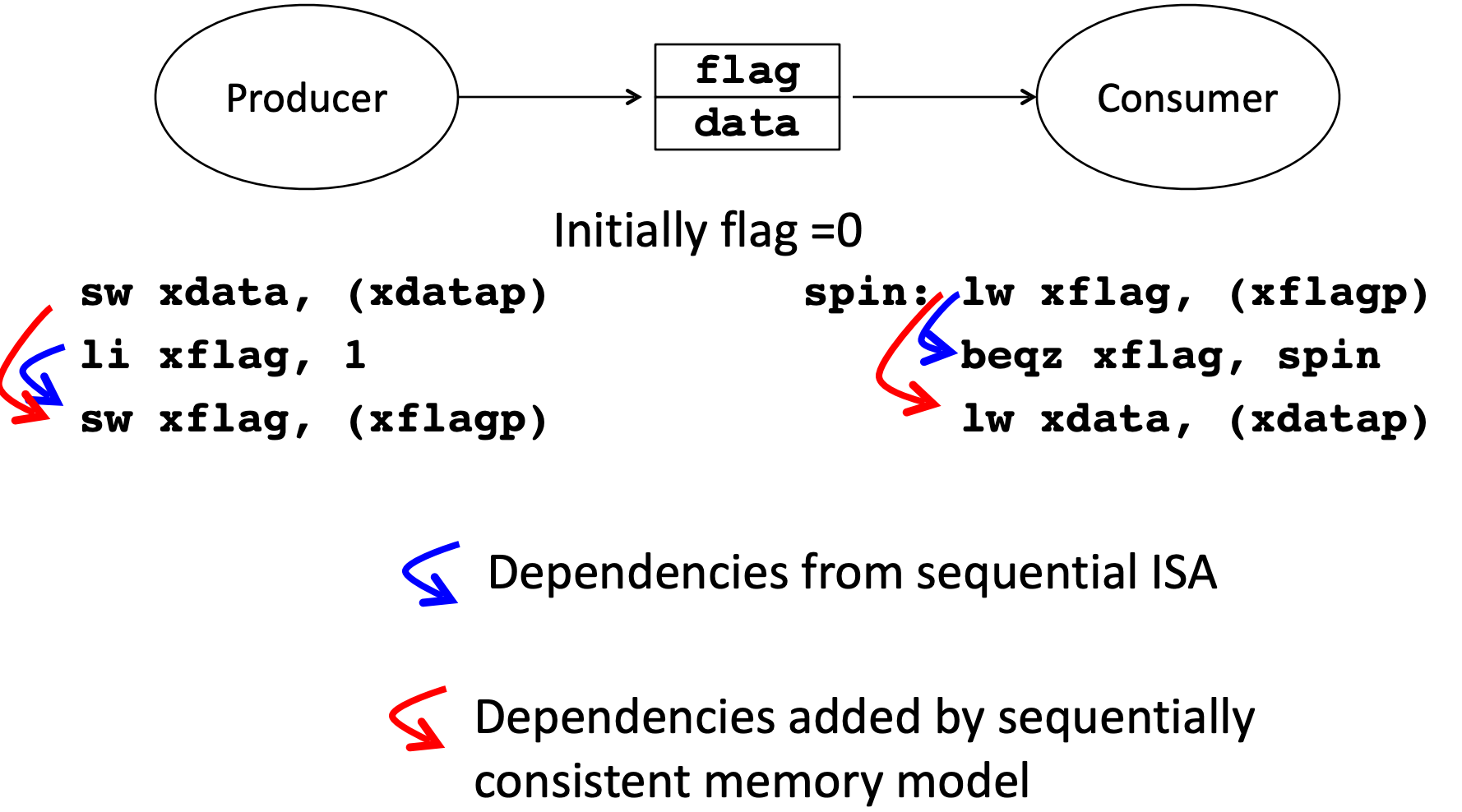
Solutions
Total store ordering (TSO)
Processor P can read B before its write to A is seen by all processors

Possible Outcomes(Blue could be done before red)
P1.x2 P2.x2 SC TSO 0 0 N Y 0 1 Y Y 1 0 Y Y 1 1 Y Y Fences
